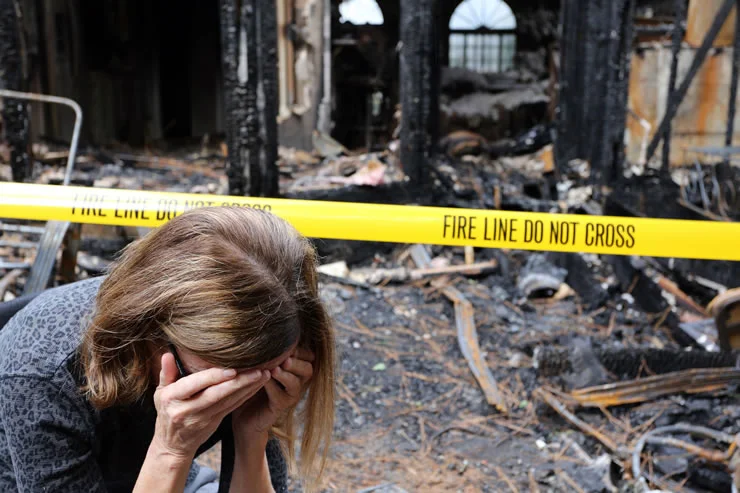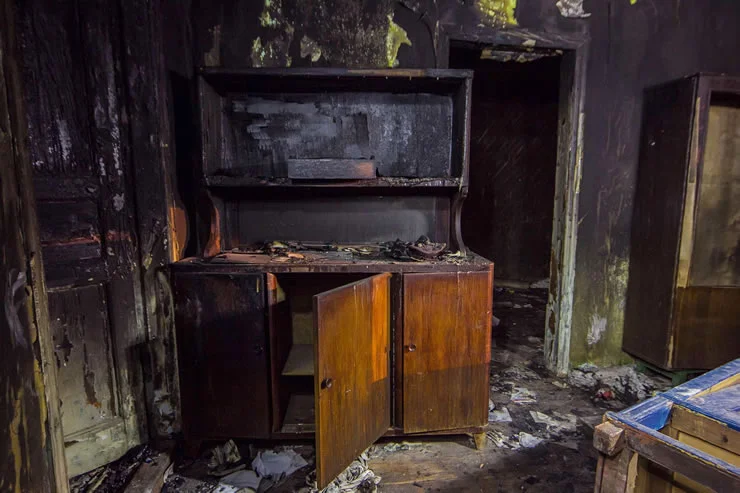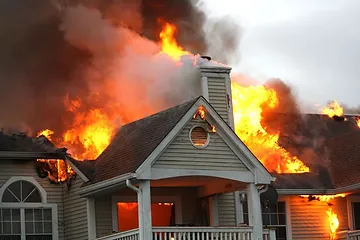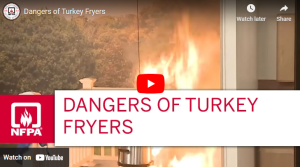
A fire can be one of the most physically, emotionally and psychologically damaging things you can hope to never experience as a homeowner.
First of all, you’ll want to get familiar with your homeowners insurance policy. You’ll want to know what’s covered, and how much you can expect to be paid out on your damaged contents, and on repairs and construction. You’ll also want to know what’s excluded from coverage, and if there are any determinations on how a claim must be filed. You’ll also want to know if there are any deadlines that apply. You should have a copy of your policy in a safe place, and review it regularly to ensure your coverage is suitable before a loss occurs. You can contact your insurance agent for a copy if need to obtain one. Remember to contact your insurance company as soon as possible after a loss– in fact, it’s often required to contact them immediately after a damage or after clean-up has begun. An assumption of negligence or failure to file a claim as indicated by your policy could cause your carrier to limit or even deny coverage on your fire claim.
You have a responsibility as a homeowner to mitigate damage to your property. In a fire, this means contacting the fire department to stop any burning or smoldering still ongoing, contacting an emergency service to board up your property if necessary to prevent vandalism and break-ins, and hiring a mitigation company to begin the process of cleaning the property of smoke, soot and water (in case of sprinkler) damage.

Next, you should know that you can ask for an advance on your eventual claim to cover any necessities for living should you have to evacuate your home. Your policy will cover the cost to replace any basic items such as toothbrushes, work clothes, and other living expenses. You should save all receipts for these items in order to be appropriately reimbursed. Your insurance will also cover the cost for temporary living arrangements, should you need to stay in a hotel or extended stay housing.
As difficult as it may be, cataloging everything is an important key to ensuring you’re fairly reimbursed for your damages. That means photographing everything: from electronics to appliances, from socks to refrigerator magnets.
Without documentation of your damaged belongings, your insurance company is under no obligation to offer a replacement. You should also make a detailed inventory of all property that was damaged. This should include make/model of the items, the date of purchase, the amount paid and what the current value is. As tedious and challenging as this aspect can be, the more detailed you can be, the better your chances will be of getting fair replacement value for your damaged contents. A restoration company such as Tri State Restorations will also be happy to assist you during this stressful process.

Lastly, always read the fine print on any reimbursement payments from your insurance carrier to ensure you aren’t signing away any rights. Don’t cash a check that says “Payment in Full” if it isn’t, and don’t cash a check that indicates the policyholder waives any rights by cashing the check without getting clarification from your insurance company first. Your insurance wants to close the claim as quickly as possible, though many homeowners find additional damage following the initial loss that they overlooked due to the stress of the situation. A wise homeowner will wait a few months before allowing the claim to be closed to ensure he is covered for anything that might come up.
Lastly, always read the fine print on any reimbursement payments from your insurance carrier to ensure you aren’t signing away any rights. Don’t cash a check that says “Payment in Full” if it isn’t, and don’t cash a check that indicates the policyholder waives any rights by cashing the check without getting clarification from your insurance company first. Your
What to Do After a Fire
If you experience fire damage in Maryland, Virginia, or Washington, DC, know that you can always count on the experts at Tri State Restorations to help you recover your space. We’re available 24 hours a day, seven days a week for your convenience and can be on site within 90 minutes to mitigate the damage. Contact us at 866-818-1949.
#firedamage #fire #smoke #smokedamage #soot #sootdamage #sootodor #fireemergency #firerestoration
Sharing is caring!




